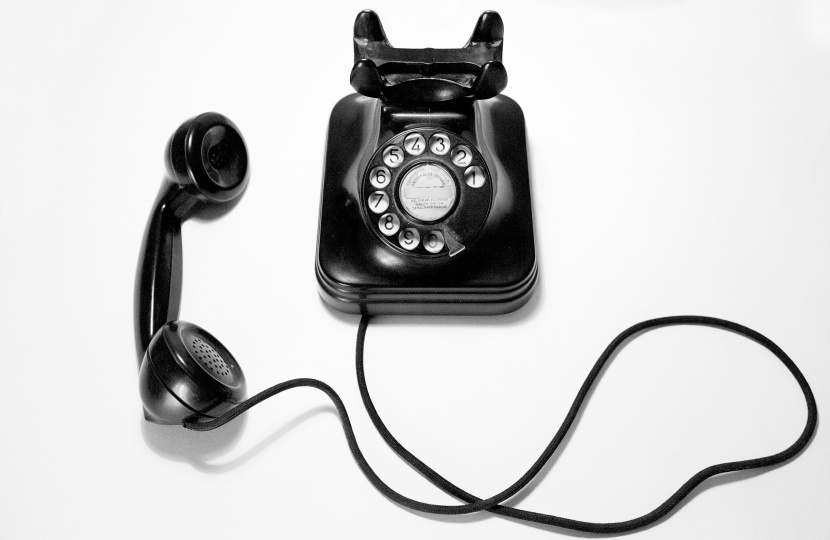
BT has unveiled new measures to help rural subscribers as it switches homes across the country to digital landlines.
From October it’s introducing a new service for those without broadband so they continue to have access to a powered line.
And its announcement has been welcomed by Ian Liddell-Grainger, one of a number of rural MPs who warned wholesale changes to the BT network would leave many rural families at risk.
BT is phasing out its 40-year-old and increasingly fragile analogue network in favour of a digital service where all calls will be made over broadband.
But the analogue network operates with a low-voltage current running through the copper connecting cables which means phone calls can still be made during a power cut.
No such facility exists with the new system. Although subscribers are supplied with battery packs these have limited life. And that, said the MPs, could leave families unable to summon help in an emergency if they lived in remote areas with no mobile signal.
Mr Liddell-Grainger, MP for Bridgwater and West Somerset, said he was delighted BT had listened to the concerns that had been raised and would continue to provide powered lines as an interim solution.
“But I am afraid this is yet another issue where BT - and it’s by no means the only offender - has failed to appreciate the special conditions applying in the countryside.,” he said.
“Whether it’s the roll-out of broadband or the removal of red telephone boxes it has lumped rural and urban areas together, whereas in reality it is dealing with vastly different circumstances.
“This example amounted to the wholesale removal of an old system before everyone had access to the new one.”
BT’s new powered line offer will only apply to non-broadband homes. It has also pledged to provide free, extra support for vulnerable customers and for those who don’t have a mobile phone, or who live in areas with no coverage and so cannot rely on their mobile in the event of a power cut.
This includes free engineer home installations and a free ‘hybrid’ phone which automatically switches over to the mobile network should the fixed connection go down.
Officials have also agreed to provide improved battery back-up units to reassure customers they will be able to make emergency calls during a power outage.
Mr Liddell-Grainger said he was delighted by BT’s response.
“Clearly it has looked at every single issue we raised on this matter and has come up with individual solutions which I believe will be entirely acceptable to most people,” he said.
“Set against the millions of BT customers the number of rural subscribers who were likely to be disadvantaged as a result of these changes was tiny. But they pay their bills like everyone else and have every right to receive the same level of service in return, no matter where they live.”

